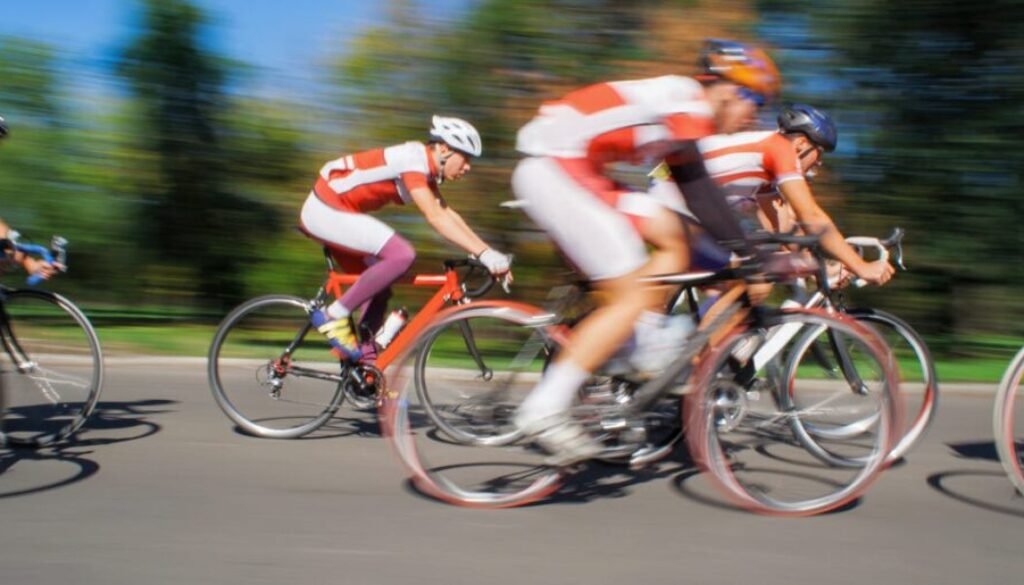Ceto diet and cycling performance
[ad_1]
- According to research published at Saint-Louis, people according to a keto diet with a low carbohydrate content had a 7% lower cutting-edge power power in a high intensity cycling test than those of a diet rich in carbohydrates.
- Researchers think that the keto diet can affect sports performance in anaerobic exercise, such as the sprint.
The keto regime with a low carbohydrate content is everywhere, and its supporters say it can do anything, to boost your metabolism to help you lose weight to calm your inflammation.
When you cut the carbohydrates, you replace these calories with fat calories. Then, your body turns into fat for fuel, producing a compound called ketones, which are then used as a source of energy. You owe Really Cut your carbohydrates to reach this level, an keto diet obliges you to reduce carbohydrates to less than 5% of your daily caloric intake.
But in addition to being very restrictive, how much can your carbohydrate cut – the favorite fuel for the exercise – affect your cycle performance? Researchers from Saint-Louis University have decided to discover it.
In the study, researchers examined 16 men and women, at the average age of 23, who underwent a cycling exercise test after having followed a keto diet with a low carbohydrate or a diet rich in carbohydrates for four days.
They found that those of the low -carbohydrate group had 7% lower peak power during the anaerobic exercise – short -term exercise, high intensity things that include sprint and jump.
Something called acidosis – a condition that stems from an imbalance in the pH of the blood, creating an excess of acid in your system – can limit power during this type of exercise, which could explain the decrease found in the study. A potential cause of acidosis? Keto diets.
This may be due to the fact that ketones increase this level of acid. Fortunately, the diets do not cause a sufficiently large point to switch from ketosis – when you have higher levels of ketones – to fatal ketoacidosis, when the body produces a level of dangerously high ketones, a condition considered as a complication of diabetes.
But the acid increase in ketosis could have an impact on performance.
“Our small study, as well as those carried out by others, adds to the accumulation of evidence that these regimes are not good for performance and can in fact be harmful,” said principal researcher Edward Weiss, MD, an associate professor at Cardiovascular Research Institute of the University of California San Francisco. “Based on existing evidence, it is not recommended for athletes and others to follow a low -carbohydrate ketogenic diet.”
Although there is anecdotal evidence that Keto helps some people to run faster and can improve health markers such as cholesterol, Weiss thinks that these advantages are likely to come from the weight loss associated with keto food – and that any similar diet would do the same.
It’s not like Weiss was an anti-Ceto defender. He said in the past that the keto diet can be incredibly powerful and offers many metabolic advantages because the body treats the remaining carbohydrates more effectively, which concerns much less insulin.
But a big problem is that few clinical studies have been carried out in humans beyond crisis prevention. Mouse studies are promising, but it is not clear if these results translate into people.
Thus, although this recent study is limited because of its small sample size, its short period of time and its low -cut demographic group, at least, it is a beginning to look at the diets keto in humans, and in particular in athletes.
In addition, he supports the results of another study, he published in the Journal of the American College of Sports Medicine And done using a treadmill test rather than cycling. In this study – which also had a small sample size – the researchers noted that a keto diet caused a decrease in the efficiency of the exercise during high intensity cycles, as well as a 5% drop in speed. The keto diet did not seem to hinder the exercise of moderate intensity, however.
And this corresponds to the way in which our bodies consider carbohydrates as premium fuel for exercise.
“When the intensity of the exercise is high and our oxygen availability is limited, our body naturally goes to carbohydrates for fuel,” he said.
Indeed, with carbohydrates, our body produces ATP – the source of energy which leads to muscle contraction and other physiological processes – faster than fat and proteins.
“Carbohydrates allow us to run, cycle and sprint better than we can with other fuel like fats and proteins,” said Weiss.
What is the point to remember? Maybe if you want to go faster and go after the major PRS, eat the Keto track could be a bust. But if you are all about maintaining your physical form thanks to a moderate intensity exercise, or if you notice a problem with carbohydrates during exercise, the diet can always be an option.
Elizabeth Millard is an independent writer focusing on health, well-being, fitness and food.
[ad_2]




